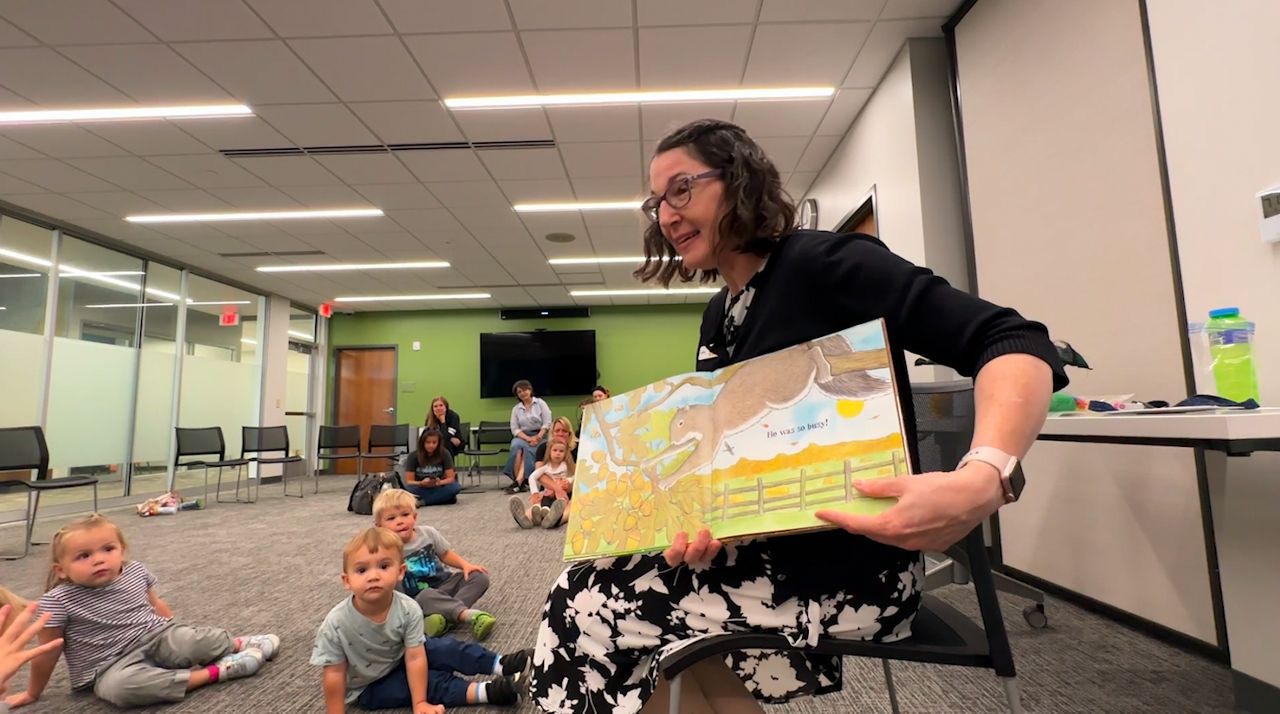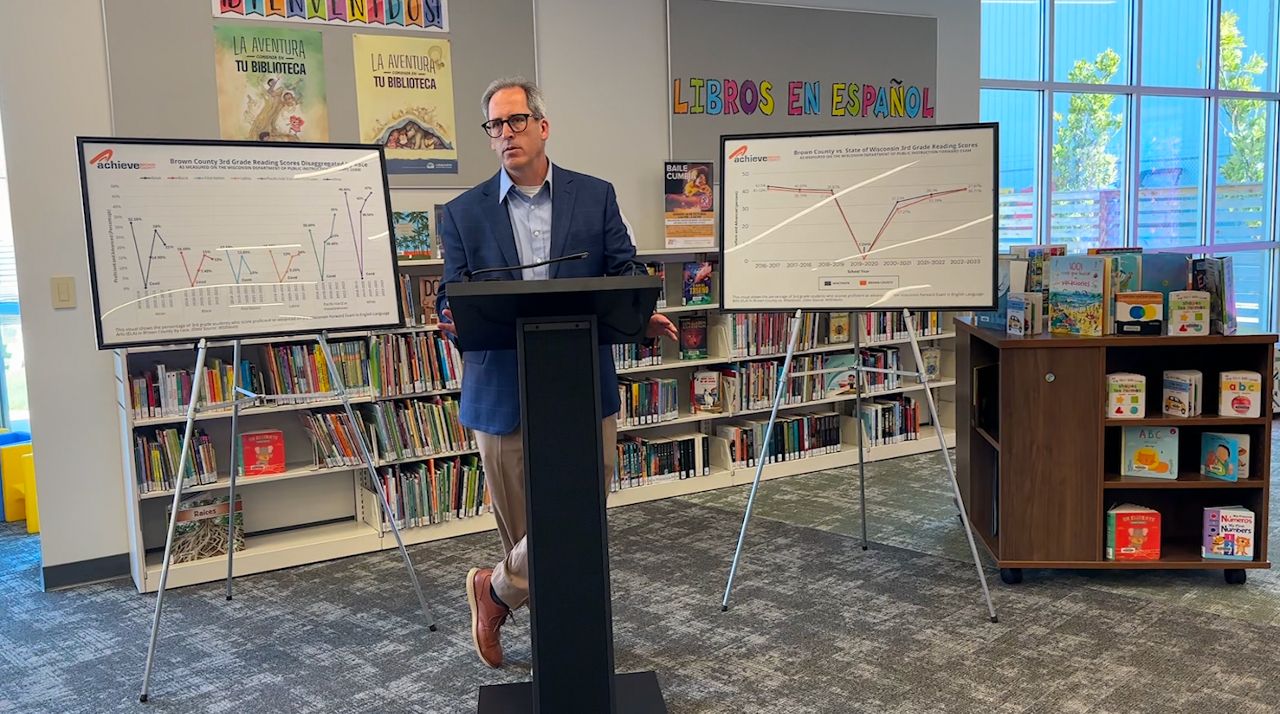GREEN BAY, Wis. — It’s story time at the Brown County East Branch Library in Green Bay, Wis.
Molly Senechal said it’s also one of her favorite times as a youth services librarian.
“We engage the children through singing and dancing. We incorporate rhymes, because that helps with reading later on,” she said. “We want them to have fun and associate reading with good feelings, so that they will do it later on as a leisure activity.”
Senechal said early education like this helps build skills for reading and writing. Those are skills children will use the rest of their lives.
“It’s good for so many things: Learning how to make things, learning how to build things, information, learning about the world, different languages and just for fun.”

According to the Wisconsin Department of Public Instruction's Forward Exam, literacy proficiency is right around 37% in Brown County. That’s just a few fractions of a point under the state average.
Pre-pandemic, the rate ranged between 37% to 41%, a trend mirrored at the state level.
Brown County Executive Troy Streckenbach said literacy skills have far-reaching implications for the entire community and state.
“That number needs to be much higher,” he said. “Unfortunately, those 60% of children who are not reading proficiently at third grade oftentimes lead to other problems in the community. Juvenile justice to incarceration to difficulties advancing.”
Streckenbach said there’s not one, simple solution to improving literacy.
“That’s going to require the neighborhoods, the families, the grandparents, the libraries, nonprofits and everyone to come in and say, ‘We know that our reading proficiency in this county is not at the level we want. What can I do while I have time with this child? What can I do to help improve it?’” he said. “That’s the way we have to start thinking.”

The nonprofit Achieve Brown County is working with a collection of organizations to improve the literacy proficiency rate in the coming years.
"It affects our workforce; it affects our economy,” Executive Director Sarah Beckman said. “We want young people to know how to read so eventually they can get into the workforce and use literacy in the workforce."
Senechal said she thinks the early childhood literacy work being done at the library is making a difference.
“The ability to read, in whatever language, just enriches your life in so many ways. For yourself and for other people,” she said.



